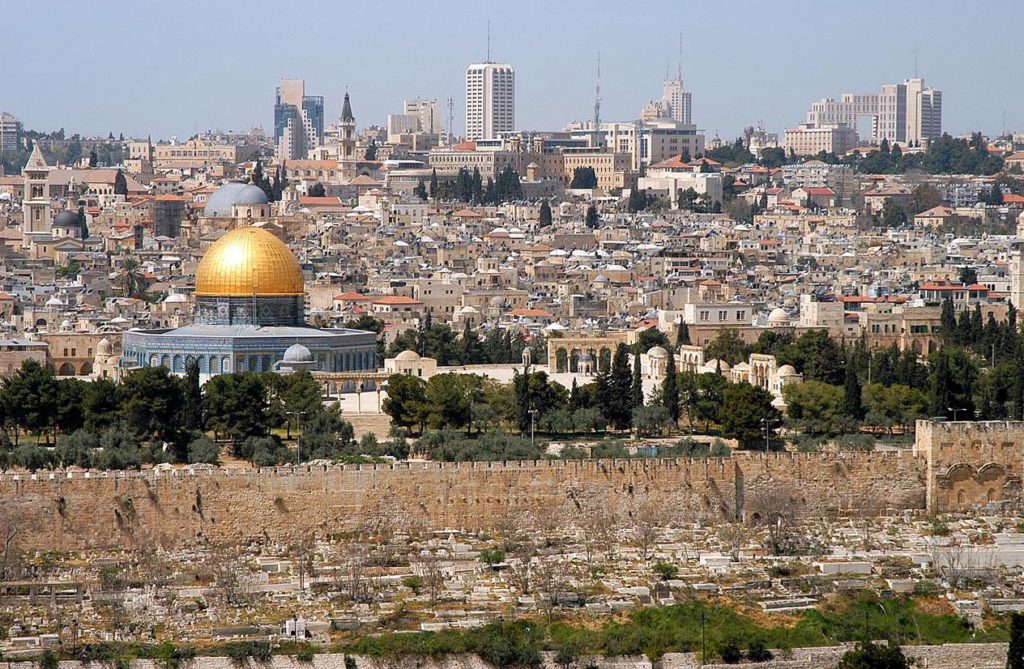IN THE MEDIA
End the Madness over Jerusalem
February 13, 2017 | Colin Rubenstein

Colin Rubenstein
An edited version of this article was published in The Australian – 13 February 2017
The City of Jerusalem, holy to the Jewish, Christian and Islamic faiths, is known to cause its own particular kind of madness. About 50 foreign visitors to the city a year experience what is known as “Jerusalem Syndrome” – psychotic delusions that they are biblical figures or harbingers of Armageddon.
The city also causes some peculiar diplomatic madness. Jerusalem is Israel’s capital, but almost no country recognises it as such. Israel is the only country in the world which other nations refuse to allow to choose its own capital.
Many commentators and journalists say or imply that is because other countries don’t want to recognise Israel’s supposed occupation of the eastern half of the city, which Israel captured in the 1967 war, and which the Palestinians want as the capital of their own future state.
This is just wrong. Jerusalem has been Israel’s capital since 1950, long before the 1967 war, and even between 1950 and 1967, most states refused to recognise it as Israel’s capital. So it’s not about the “occupation” of east Jerusalem.
So what is it about? It’s because of a completely obsolete element of the UN Partition of 1947 which called for a Jewish state and an Arab state in what had been the British mandate of Palestine. This had called for Jerusalem to be an “international city” under UN control, re-affirmed by a couple of subsequent General Assembly resolutions. Yet during the 1948 war between a fledging Israel and several Arab states after the Arabs rejected partition, the UN made no effort to enforce its plans for Jerusalem, or defend its majority Jewish residents from a siege launched by the Jordanians and Palestinian militias to starve them out. Nonetheless, after the war, it was thought by some diplomats that the old idea of an “international city” might be revised in peace talks.
It never happened. Moreover, not only does no one in the region today want Jerusalem to become an international city under UN control, the original 1947 plan was only to make it an international city for ten years, until a referendum of the majority Jewish residents could decide its future. So this idea passed its use-by date in 1958.
Yet most countries continued to refuse to recognise Israel’s capital even in West Jerusalem – largely because of inertia. Any plan to end this ridiculous situation whereby Israel was not allowed to pick its own capital on land no one seriously disputed was legally Israeli was met with two claims – 1. Any pro-Israel change would upset Arab states and actors, who might react violently, and 2. Any move might interfere with hopes for progress toward peace.
With the new Trump Administration in Washington looking like it is seriously considering a move of the US Embassy to Jerusalem – something promised by almost all recent US Presidential candidates but never delivered – the Palestinians and others are making both the above claims. Moreover, they are also claiming that any recognition of any part of Jerusalem as Israel’s capital somehow forever precludes the eastern part of the city becoming a Palestinian capital. This, as noted, is just plain nonsensical given that west Jerusalem has been Israel’s capital since 1950.
Moreover, another form of diplomatic madness has also surrounded Jerusalem in recent years. The Palestinians, using the fact that they can almost always generate an automatic majority at the UN from Arab and Muslim-majority states and their allies, have succeeded in passing a series of resolutions on Jerusalem at UNESCO, the UN cultural organisation. These essentially declare all holy sites in the city, including Judaism’s holiest sites, the Western Wall and Temple Mount, as wholly Muslim shrines. Not content with this blatant and ugly exclusionism against two of the three religions to which the city is holy, they are now demanding that history also be rewritten to deny any past Jewish connection to the city whatsoever.
Thus, when UN Secretary-General António Guterres recently gave an interview in which he acknowledged that “It’s clear as the sun is clear that the Temple [in Jerusalem] which was demolished by the Romans, is a Jewish temple” and added, “no one can deny the fact that Jerusalem is holy to three religions today”, this led to a frantic reaction from Palestinian officials.
Adnan al-Husseini, the Palestinian Authority’s Jerusalem Affairs Minister, demanded that Guterres “issue an apology to the Palestinian people”. Similarly, the Deputy Secretary of the Fatah Revolutionary Council, Faiz Abu Ita, stated that Guterres’ comments were “infuriating” and “unjustified” from “ethical, humanitarian, and political” standpoints.
It is time to end the diplomatic madness over Jerusalem. Whatever other controversies are surrounding the Trump Administration, its plans to move the US Embassy there are both a matter of common sense, and a positive intervention at a time when international debates about Jerusalem are becoming increasingly unhinged. Nor should threats of violence sway this debate.
If Canberra genuinely wants to progress our bipartisan policy of pushing a two-state peace agreement negotiated between Israel and the Palestinians, it would be well-advised to consider following suit, if and when the Trump Administration actually decided to make this long overdue Embassy move.
Dr. Colin Rubenstein AM is Executive Director of the Australia/Israel & Jewish Affairs Council. Previously, he was a Senior Lecturer in Middle East politics for many years.
Tags: Israel





